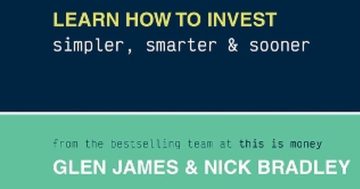Liv Steigrad* shares her top tips for keeping financially on track.
 “What gets measured gets managed”. You’ve probably seen this quote floating around the internet.
“What gets measured gets managed”. You’ve probably seen this quote floating around the internet.
It tends to pop up on productivity blogs and motivational Instagram accounts, in nice robust fonts with block colour backgrounds.
While it isn’t always applicable, when it comes to being smarter with your money, it definitely can be.
Check out our eight top tips to help keep you on track.
- Know yourself
No, that doesn’t require going on a meditation retreat.
What it generally requires is taking an honest look at your values and behaviour.
Why do you work? What does money mean to you emotionally? Safety? Excitement? Freedom?
Once you’ve identified that, you can link it to something more concrete.
What do you want money to enable you to do – buy a house? Travel? Retire early?
These questions are worth taking your time to answer because when it comes time to make a financial decision, it’ll be worthwhile having that ultimate goal in mind.
While it’s great to look to the future, don’t forget to look at the present too.
How do you spend your money? Are you strategic? Do you budget? Are you an impulse shopper, or do you wait for the sales?
Knowledge is power. Know yourself. Control your money.
- Read the fine print
I can’t stress this enough. Don’t sign anything without reading the fine print.
Don’t sign up to anything without reading the fine print and ensuring you understand what fees you might need to pay and when.
So make sure you know the terms and conditions beforehand, and don’t forget to cancel that thing you signed up for with the free trial that rolls into a subscription unless you cancel.
- Same same, but cheaper
Being smart with your money doesn’t mean being totally frugal. Don’t give up what you love.
Just find a way to work it into your budget.
For example, if having a few friendly drinks with your mates is something you don’t want to give up, find a bar with happy hour discounts.
Or you could host a pot-luck at your place where everyone is asked to bring a dish big enough to share.
Not only does this give you a low-cost opportunity to hang out with your mates, but you might also get a bunch of leftovers to pack up for your lunches for the next few days.
- Maximise your tax return
Don’t just sit tight and hope for a nice lump sum when the end of financial year rolls around.
Being smart with your money means being proactive with your tax.
No matter what your job situation is, it’s worth doing the research.
Find out exactly what you can claim back.
Write it down somewhere and ensure you know what deductions you are entitled to.
Keep a spreadsheet so it’s easier to check where you stand whenever you like.
Stumped? You can always make a tax-deductible donation to charities who have tax-deductible status.
Where donations to charities are tax deductible, the charity will usually have this information available on their website or marketing material.
Don’t be shy about enlisting an accountant to help you out with your tax, because guess what? Tax agent fees are tax deductible.
- Manage your savings
This one requires a mix of being active and passive.
You can actively set things up so you can be passive.
For example, you can set up a regular direct deposit from your transaction account into your savings account.
Some apps also allow you to ‘round-up’ your purchases and automatically send the rest into your savings.
Depending on your income and expenses, you can either move a certain amount into your savings as soon as you get paid (and use the rest) or keep a certain amount for spending and whatever you make above that goes into your savings.
(The second option is often more useful for anyone who isn’t on a regular salary.)
- Be strategic with your superannuation
Super is another one of those things it’s easy to ‘set and forget’.
You may benefit from getting online or on the phone and finding out where you stand, what your fees are, whether there is a company offering something more suitable to your circumstances and whether or not your existing super fund subscribed you to a product or service you may not need as an automatic inclusion (such as insurance).
Depending on your personal circumstances, you may wish to consider a higher or lower risk investment strategy.
You can also make voluntary super contributions, which may be taxed at a lower rate under certain circumstances and may reduce your overall tax bill.
If being a first home buyer is in your future, you can consider making voluntary contributions into your super fund which you can later withdraw to put towards your property!
- Cook at home
This is a lifestyle change you can make now, which may have long-lasting effects for your pocket.
Perhaps minimise more expensive pre-packaged items.
That pre-packed bag of coleslaw may be the same price as a whole cabbage, but that whole cabbage might be fresher and last you a whole lot longer.
Stock up on things when they’re on sale and opt for the imperfect picks produce section if your supermarket has the option!
Take your lunch to work.
The best of intentions tends to get tossed out the window when hunger strikes, and you could make yourself sandwiches for the whole week for the same prices as one lunch out.
- Be careful, but not fearful
This one can be hard.
Let’s say you’ve been budgeting and reading the fine print and cooking at home, and now you’ve got a good sum in your savings.
What next? The truth is, even if you’re scrupulous with every dollar you earn, it can be difficult to build wealth just by saving money.
At some point you might want to take the plunge.
Put that deposit down. Invest in something. Take the first active step towards your lifelong wealth.
*Liv Steigrad is a creative copywriter with a background in psychology.
This article first appeared at spaceship.com.au.











